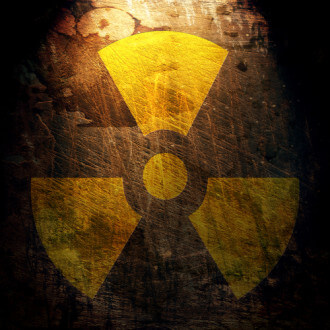Ricochet is the best place on the internet to discuss the issues of the day, either through commenting on posts or writing your own for our active and dynamic community in a fully moderated environment. In addition, the Ricochet Audio Network offers over 50 original podcasts with new episodes released every day.
 Trump’s Failure to Judge Risk: Why U.S. Security Can’t Be Run Like a Business
Trump’s Failure to Judge Risk: Why U.S. Security Can’t Be Run Like a Business
 Over the past week, Donald Trump has doubled-down on his pro-nuclear proliferation stance with regard to Japan and South Korea (or, at the very least, being very open to the idea of those countries arming). Trump’s reasoning is simple: he doesn’t believe the United States should foot the bill for others’ security without being better compensated for its efforts. For Trump’s supporters, this stance demonstrates his ability to think like a business man and to run the country like a business.
Over the past week, Donald Trump has doubled-down on his pro-nuclear proliferation stance with regard to Japan and South Korea (or, at the very least, being very open to the idea of those countries arming). Trump’s reasoning is simple: he doesn’t believe the United States should foot the bill for others’ security without being better compensated for its efforts. For Trump’s supporters, this stance demonstrates his ability to think like a business man and to run the country like a business.
The problem with Trump’s thinking on this matter is that maintaining national security requires a different cost-benefit analysis than does running a hotel or casino. Simply put, Trump fails to apply the appropriate risk analysis to the situation. We spend our treasure protecting Japan and South Korea not so much for altruistic reasons, but because the risk of nuclear proliferation is so great that we can’t afford not to.
This election has shown the unpredictability of national opinion. If America can elect someone like Trump, what confidence can we have that a newly-rearmed Japan or South Korea won’t wind up with a leader who triggers a nuclear holocaust? If Trump’s gamble fails and that happens, there will be no bankruptcy court to run to; there will be no tangling Japan up in court until they give up; there will, however, be the real possibility of unparalleled death and destruction.
Failing to appreciate probabilistic risks that cannot be boiled down to dollars and cents is one of Trump’s many intellectual failings. The security of the United States is not a business that this man can run. And when it goes belly up, we can’t just stick a sign in the window and move on.
Published in General



Does anyone know whether South Korea’s having its own nuclear arsenal would make it easier for it to protect itself from North Korea?
Given North Korea’s aggressive and barbaric government, I would want South Korea, a good friend, to be able to protect itself should it need to.
Also, are the nuclear arms we’re talking about ours but located inside South Korea? Or are our warheads in other countries nearby or on our submarines or on our aircraft carriers, so they are not technically on South Korea’s soil?
If they already have them inside their country even though they are technically ours, it would seem that they are handling them responsibly.
I guess I’m wondering if this is a large gun control issue–most days, I would more guns distributed, not fewer. As they say, the police are a phone call and minutes a way, and it takes on seconds for the bad guy to shoot me.
Shouldn’t South Korea be able to protect itself in the fastest and best way possible?
Ditto all of these questions for Japan, although I don’t think they face the same imminent threat as South Korea. (Or perhaps they do and I need to look at map. :) )
Again, I suggest we encourage people who are friendly to the US to arm themselves, not merely our enemies.
That we have a policy of appeasing our enemies and betraying our friends is idiotic, but it is not the policy I’d prefer the country to have.
It is, however, the policy both parties seem to want.
I disagree, obviously.
During those years when school children practiced hiding under their desks to prepare for the event of Russian nuclear attack, the debate raged over whether more nuclear weapons would deter the Russians or convince them we intended to attack them, and vice-versa. Hence the Salt and Start treaties, and the controversy surrounding them. It is not a question with a certain answer. It is a complex game theory problem.
If North Korea decides to attack South Korea, with or without nukes, South Korea loses even if it wins, and Seoul is in range of tens of thousands of artillery pieces. One could argue that whatever makes war less likely is the correct approach. But is the correct answer for South Korea to have nukes or not to have them?
We convinced Ukraine to give up its Nukes for paper guarantees. That really didn’t work out well for them. If I were South Korea or Japan I would be quietly researching Nuclear weapons both have the technical capabilities necessary. I suspect the current administration’s incompetence and the current tenor of the US election has convinced many of our allies to at least plan to take matters into their own hands. South Korea, Japan, and Germany are not nuclear powers because of convention not capability. If they truly believed that Nuclear weapons were necessary to protected their sovereignty, in so far as the still value it, they could acquire nukes extremely quickly.
Would they be able to test them?